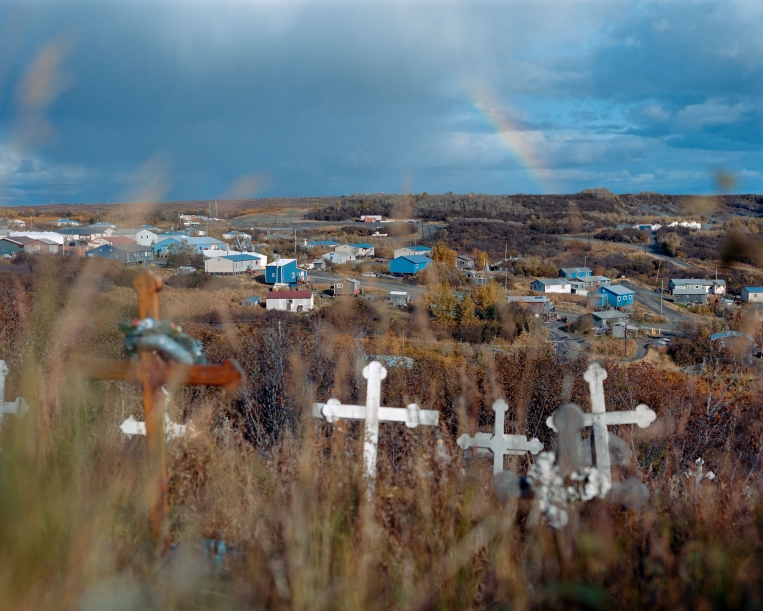

Sunrise view from the cemetery in Mountain Village, a community in Alaska’s Yukon-Kuskokwim Delta, the morning after Drake “Clayton” Wilde’s burial. Wilde was only 19 years old when he died by suicide, following a number of local teens who have taken their lives in recent years.
Native-led suicide prevention program focuses on community strengths
Brandon Kapelow | Alaska, United States
Organization: NPR
Photographer: Brandon Kapelow
Organization: NPR
Exhibit Title: Native-led suicide prevention program focuses on community strengths
Location: Alaska, United States
Alaska’s Yukon-Kuskokwim Delta - where village communities are facing overlapping threats from climate change, substance abuse and domestic violence - is home to the nation’s highest rates of suicide. Indigenous leaders at the Center for Alaskan Native Health Research have taken a unique approach to this issue by studying a Yup’ik culturally-based model to suicide prevention in Alaskan Bush villages that focuses on community strengths and protective factors, rather than risks alone. Their initial data were so promising that the Department of Defense recently awarded them a multi-million dollar grant to try and replicate their study on remote Alaskan military installations.
Editor - Ravenna Koenig, Western Bureau Chief @ NPR
Health Editor - Rhitu Chatterjee, Health Correspondent @ NPR
Regional Editor - Sage Smiley, News Director @ KYUK
Safe Messaging Fact-Checking - Maria de los Angeles Corral, VP of Public Relations @ The American Foundation for Suicide Prevention
When I was twelve years old, I lost my father Stephen to suicide. Growing up in Wyoming, I came to learn that suicide is an epidemic that's geographically-linked and at its deadliest in the West, with all of the most severely impacted states lying across the 100th meridian. This article is part of a long-term project that examines the relationship between self-violence and the environment in which it occurs, through a series of stories highlighting the states and counties with the nation's highest rates of suicide death. By photographing survivors and empowering them to share their stories, my aim is to foster hope and connection through shared experience, to start difficult conversations in communities where mental health remains stigmatized, and to provide insights to policy-makers facing this public health dilemma.
Stanford University's Bill Lane Center for the American West
The University of Alaska Fairbanks' Center for Alaska Native Health Research
The American Foundation for Suicide Prevention
National Public Radio (NPR)
KYUK Public Media
Brandon Kapelow
brandonkapelow@gmail.com
307-690-5683
Make Comment/View Comments